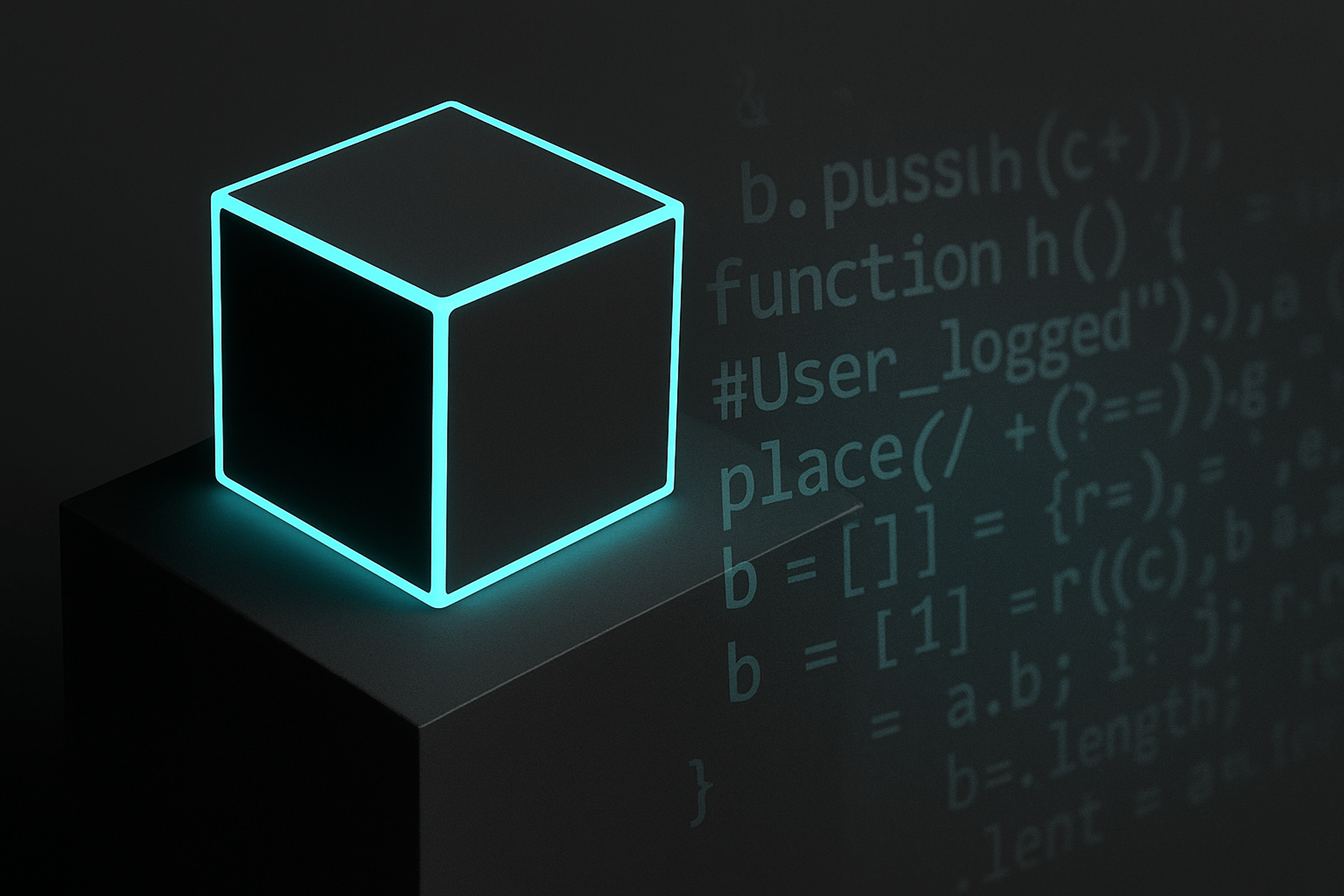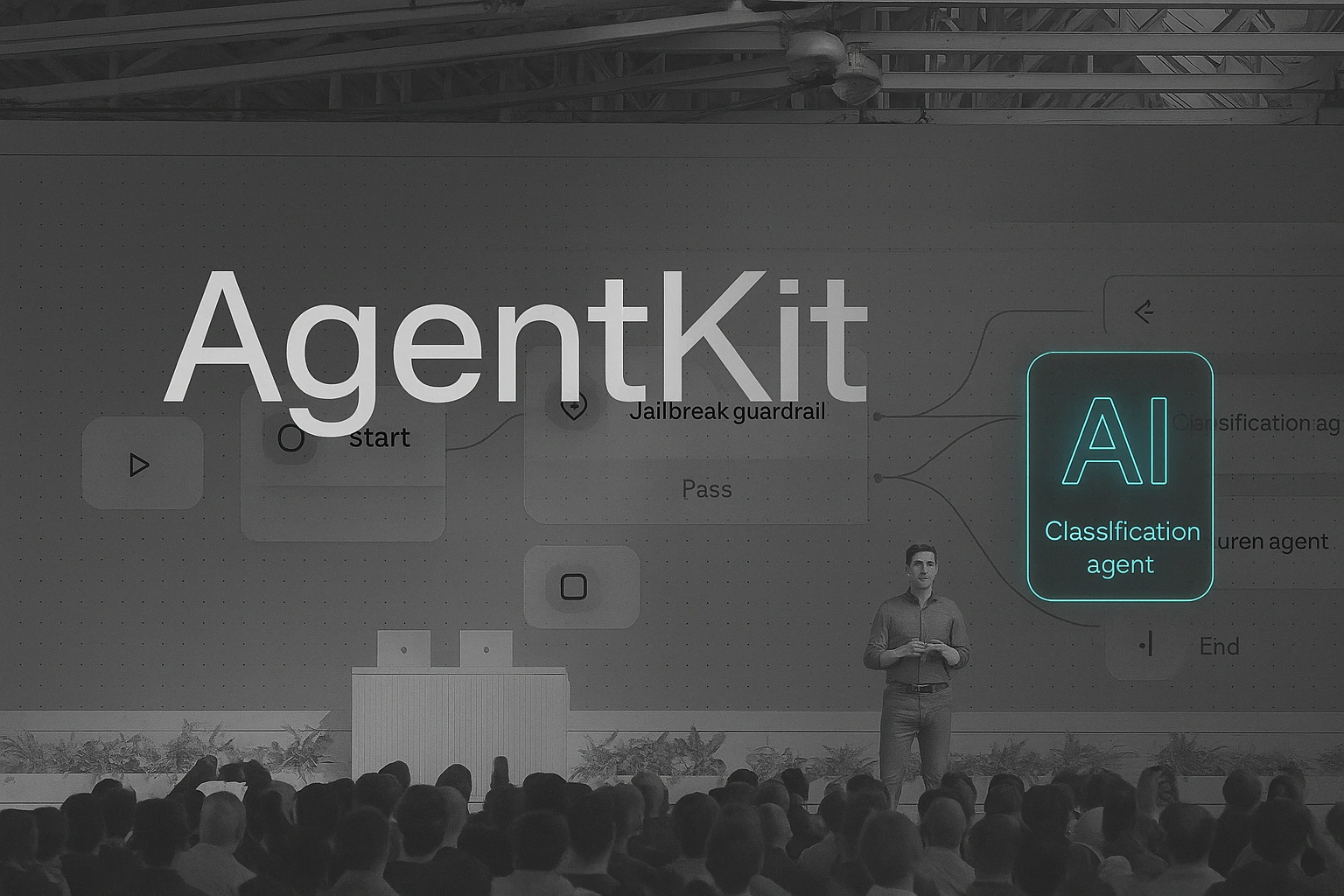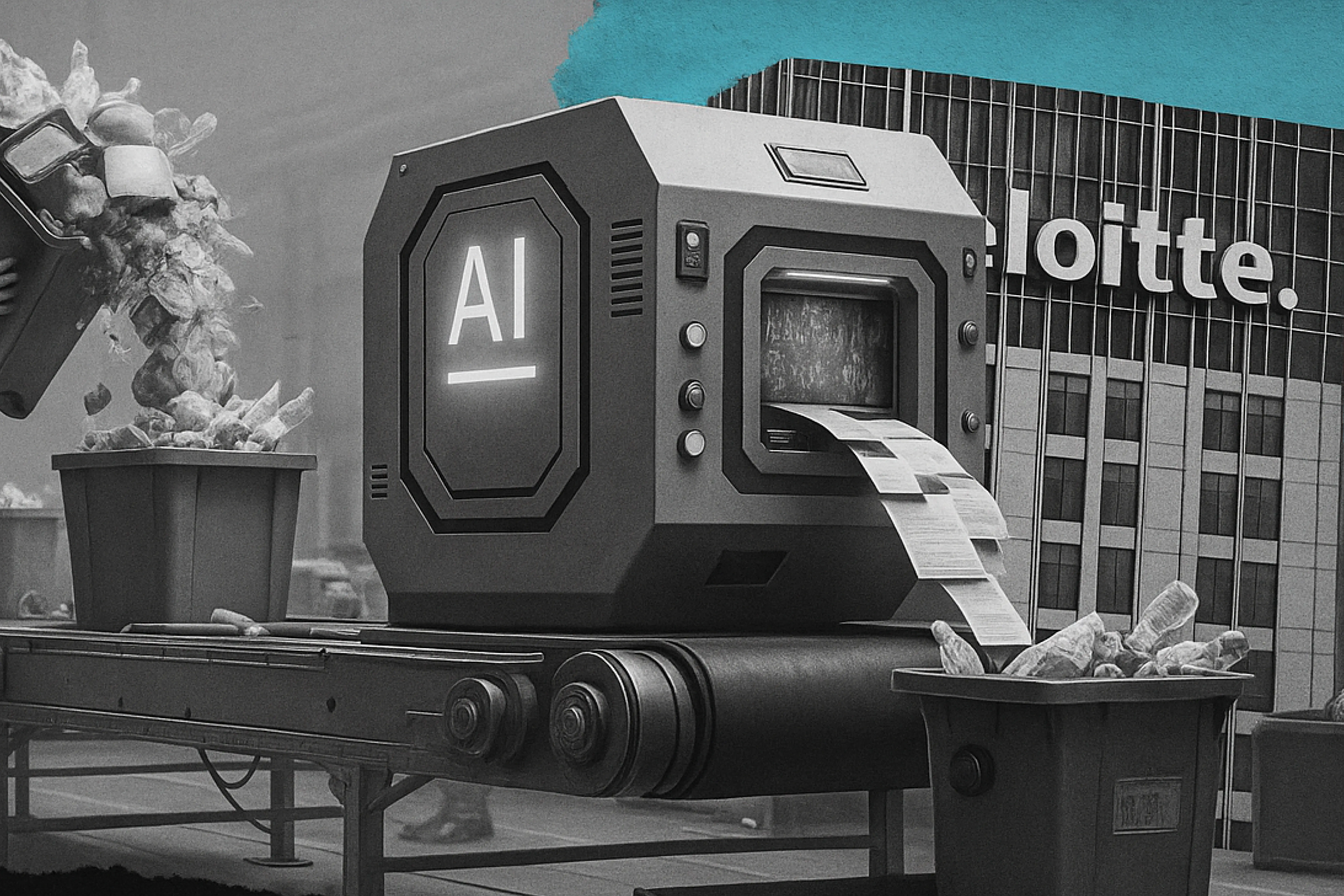
at
Key Takeaways
Your AI is smart. But is it connected?
Summary
Most enterprise AI systems underdeliver because they lack real-time access to business data.
The Model Context Protocol (MCP) is a standardized framework that enables scalable, secure, and intelligent integration between AI models and enterprise systems.
This article outlines how MCP eliminates custom integration bottlenecks, reduces token costs, accelerates time-to-market, and creates long-term competitive advantages through connected, context-aware AI.
Whether you're leading AI strategy, optimizing operations, or scaling digital infrastructure, this is your complete guide to MCP implementation, from business case to real-world deployment.
Picture this:
You've invested millions in cutting-edge AI models.
Your team built sophisticated chatbots, AI assistants, and automation tools.
But when customers ask "Where's my order?" your AI can only say "I don't have access to that information."
Sound familiar? You're not alone.
The brutal truth: Most enterprise AI systems are brilliant in isolation but useless in practice because they can't access the data they need to actually help your business.
This isn't a technical problem, it's a strategic one. And it's costing you customers, revenue, and competitive advantage every single day.
In an era where artificial intelligence is the backbone of product innovation and customer experience, businesses that harness contextual memory are building defensible, scalable advantages.
The Model Context Protocol (MCP) is emerging as a foundational layer for companies serious about deploying intelligent, adaptive, and revenue-generating AI systems.
More than just a technical enhancement, MCP is a business accelerator.
Companies using MCP are not only improving the intelligence of their AI applications but are also realizing measurable business returns, driving retention, reducing operational costs, and unlocking new monetization layers.
Why do most enterprise AI systems fail to deliver real value?
Why smart AI fails at simple tasks
Your AI can write code, analyze complex data, and solve mathematical equations.
But ask it to check inventory levels, update a customer record, or pull data from your CRM? Suddenly, it's helpless.
Here's why: Your AI systems live in isolated bubbles, disconnected from your business data.
Think about your current setup:
- Your AI knows what it learned during training (which is already outdated)
- Your business data lives in dozens of different systems: CRM, ERP, databases, APIs
- Every time you want AI to access new data, you need custom integration work
- Each integration takes months and costs hundreds of thousands of dollars
The result? You have expensive AI that can't do the basic things your customers actually need.
.png)
The hidden cost of disconnected AI
Let's be honest about what this isolation is costing you:
Customer experience
When your AI can't access real-time data, customers get frustrated with generic responses instead of actual help.
Development costs
Your engineering team spends 70% of their time building custom integrations instead of improving your core product.
Competitive disadvantage
While you're stuck with basic AI features, your competitors are building context-aware systems that deliver real value.
Opportunity cost
Every month your delay means missed revenue from AI features you could have launched
What are context protocols and how do they solve AI integration problems?
What if your AI could access everything?
Imagine if your AI could instantly:
- Check real-time inventory across all your warehouses
- Pull up any customer's complete history and preferences
- Access your knowledge base, documentation, and internal tools
- Update records, send emails, and trigger workflows
- Connect to any system your business uses, without custom coding
This isn't science fiction. It's what happens when you implement context protocols.
Meet the Model Context Protocol (MCP)
The Model Context Protocol is like creating a universal adapter for your AI systems. Think of it as the "USB-C for AI", one standard that connects everything.
Here's how it works
Instead of building separate integrations for every data source and every AI model, MCP creates a single, standardized way for AI to connect to any system.
The impact?
"Instead of maintaining separate connectors for each data source, developers can now build against a standard protocol. As the ecosystem matures, AI systems will maintain context as they move between different tools and datasets, replacing today's fragmented integrations with a more sustainable architecture". - Anthropic, in their official MCP announcement.
Why are leading companies adopting the Model Context Protocol (MCP)?
The big players are already here
This isn't some experimental technology. The industry's biggest names are already implementing MCP:
Microsoft
According to MCP documentation, "MCP can be integrated with Microsoft Semantic Kernel, and Azure OpenAI" - indicating technical compatibility between Microsoft's AI frameworks and the protocol.
Google
Industry reports suggest DeepMind leadership has expressed interest in context protocol standards, though specific implementation timelines have not been publicly confirmed.
OpenAI
While OpenAI has not officially announced MCP adoption, the company continues to develop data connection capabilities for their AI systems through various approaches.
When the entire industry moves in one direction, you have two choices: lead or follow.
Real companies, real results
Block (formerly Square) integrated MCP into their systems.
Their CTO Prasanna explains: "Open technologies like the Model Context Protocol are the bridges that connect AI to real-world applications, ensuring innovation is accessible, transparent, and rooted in collaboration. We are excited to partner on a protocol and use it to build agentic systems, which remove the burden of the mechanical so people can focus on the creative".
Replit
implemented MCP and now "developers can build a tool once and have it work with any AI model that supports MCP". They've transformed from a simple coding platform into a powerful AI-assisted development environment.
Apollo GraphQL reports that their "Apollo MCP Server can significantly reduce the effort needed to connect AI to diverse data sources".
What is the ROI of implementing the Model Context Protocol in your business?
Implementing MCP drives measurable ROI across development, operations, and customer experience. While exact figures vary by use case, businesses leveraging contextual AI infrastructure often report:
Key quantified benefits:
- Token cost reduction
By externalizing and managing context, companies reduce redundant token input to LLMs, cutting API usage fees significantly.
For example, OpenAI's GPT-4-turbo charges per token; MCP helps reduce repeated context, optimizing costs. - Faster time-to-value
Teams using MCP report a significant reduction in time spent re-engineering prompts or recontextualizing user sessions. - Developer productivity: Engineering velocity improves through reusable context layers, lowering the cost of iteration.
How does MCP reduce integration costs and improve developer productivity?
Stop throwing money at integration hell
Right now, every AI integration follows this expensive pattern:
- 3-6 months of development time per integration
- Custom code that breaks when anything changes
- Ongoing maintenance costs that never end
- Technical debt that slows down future projects
MCP changes the equation: Build once, connect to everything.
The strategic advantages you get
Speed to market
Deploy new AI features in weeks, not months. While competitors are still building integrations, you're shipping customer value.
Cost efficiency
Instead of building custom integrations for every AI connection, MCP provides a standardized approach. Your engineering team spends time building features that matter to customers, not rebuilding the same connectivity work over and over.
Future-proofing
When new AI models come out, you don't start from scratch. Your MCP infrastructure works with any compatible AI system.
Competitive moats
Deep AI integration with your business processes creates switching costs for customers and barriers for competitors.
The network effect advantage
Here's the kicker: MCP gets more valuable as more people use it. "Anthropic maintains an open-source repository of reference MCP server implementations for popular enterprise systems including Google Drive, Slack, GitHub, Git, Postgres, Puppeteer and Stripe".
Every new MCP server that gets built is instantly available to your AI systems. Every tool vendor that adds MCP support gives you new capabilities for free. You benefit from the entire ecosystem's innovation.
How can MCP improve customer experience, operations, and internal tools?
Customer experience transformation
Before MCP:
- Customer: "What's the status of my order?"
- AI: "I don't have access to order information. Please contact support."
After MCP:
- Customer: "What's the status of my order?"
- AI: "Your order #12847 shipped yesterday via FedEx, arrives tomorrow by 2 PM. Would you like me to update your delivery preferences or send you the tracking link?"
The difference isn't just user experience, it's revenue, retention, and competitive advantage.
.png)
Internal operations revolution
Imagine your AI assistant can:
- Automatically update your CRM when a deal changes
- Pull real-time inventory data for sales calls
- Access your knowledge base to answer employee questions
- Monitor your systems and alert you to issues
- Generate reports by pulling data from multiple sources
This isn't about replacing humans, it's about making your team superhuman.
Developer productivity explosion
Your engineering team currently spends countless hours on:
- Building custom integrations
- Maintaining brittle connections
- Debugging API compatibility issues
- Rebuilding the same functionality for different AI models
With MCP, they build once and move on to solving real business problems.
What’s the long-term strategy for scaling MCP across the enterprise?
The 4 levels of AI maturity
Level 1: Isolated AI (Where most companies are today)
- AI works in isolation
- No real-time business data access
- Limited practical value
Level 2: Connected AI (Basic MCP implementation)
- AI can access core business systems
- Real-time data for better responses
- Immediate customer experience improvements
Level 3: Integrated AI (Advanced MCP usage)
- AI works across multiple systems seamlessly
- Automated business processes
- Significant competitive advantages
Level 4: Ecosystem AI (Future state)
- AI leverages partner and vendor data
- Platform network effects
- Market leadership position
The question isn't whether to implement MCP, it's how fast you can get to Level 4 before your competitors do.
.png)
The implementation reality check
Good news
You don't need to transform everything overnight. Start small, prove value, then scale.
Phase 1
Pick 1-2 high-value use cases. Get them working with MCP. Show the business impact.
Phase 2
Expand to core business systems. Train your team. Optimize performance.
Phase 3
Go big. Transform customer experience. Build competitive moats.
The companies that start today will have considerable advantages by next year.
What competitive risks do companies face by ignoring MCP adoption?
The window is closing
Here's what's happening in your market right now:
Your forward-thinking competitors are implementing MCP and building context-aware AI that delivers real business value.
Your customers are experiencing AI that actually helps them solve problems, making your basic AI feel outdated.
Your best developers are hearing about MCP and wondering why your company is still building custom integrations.
Industry standards are forming around context protocols. "This wide adoption highlights MCP's potential to become a universal open standard for AI system connectivity and interoperability".
First-mover advantages are real
Companies implementing MCP now get:
- Market positioning
Become known for superior AI capabilities - Talent attraction
Top developers want to work with cutting-edge technology - Customer loyalty
Deep AI integration creates switching costs - Ecosystem benefits
Shape the standards and benefit from network effects
Wait too long, and you'll be paying premium prices for commodity implementation while competitors enjoy the advantages of early adoption.
Why is MCP critical for future-proofing your AI strategy and business operations?
This isn't about technology, it's about surviving on the market
Every industry is being transformed by AI.
The winners won't be the companies with the most sophisticated models, they'll be the companies whose AI systems actually connect to and improve their business operations.
Context protocols like MCP are the foundation of that transformation.
The 3 critical questions you should ask
.png)
The Strategic Choice
You have two options:
Option 1:
Continue with isolated AI, custom integrations, and mounting technical debt. Watch competitors pull ahead with superior AI capabilities.
Option 2:
Implement MCP, connect your AI to your business data, and build the context-aware systems that will define the next decade of competitive advantage.
The choice seems obvious. The question is: how quickly can you move?
How can your team start implementing MCP in just a few weeks?
Start simple, think big
Week 1: Assess your current AI integration costs and identify your biggest pain points.
Week 2: Pick one high-value use case where MCP could eliminate a major integration headache.
Week 3: Set up a pilot MCP implementation. Prove the concept works.
Month 2: Expand to additional systems. Train your team. Measure the impact.
Month 3: Plan your comprehensive MCP strategy. Start building competitive advantages.
The resources you need
The MCP ecosystem is mature and ready for enterprise adoption:
- Official documentation: Comprehensive guides and best practices
- Pre-built servers: Ready-made integrations for popular business systems
- Community support: Active developer community and vendor ecosystem
- Enterprise tools: Security, monitoring, and management capabilities
Everything you need to succeed is already available.
The investment reality
Implementing MCP isn't just an expense; it's an investment in your company's future competitiveness.
Every dollar you spend eliminating integration complexity is a dollar you can invest in building superior customer experiences and business capabilities.
The cost of implementing MCP is finite. The cost of not implementing it compounds forever.
Why is connected, context-aware AI the new enterprise standard?
The age of isolated AI is ending. Context-aware AI is becoming the new baseline for competitive business operations.
The companies that recognize this shift and act decisively will build sustainable advantages that compound over time.
The companies that wait will find themselves playing catch-up in a market where context-aware AI is no longer a differentiator, it's a necessity.
Your AI is smart. But until it's connected to your business data through context protocols like MCP, it's not delivering the value you paid for.
The technology is ready. The ecosystem is mature. The competitive advantages are real.
The only question left is: Will you lead this transformation or follow it?
Sources and references
- MCP Technical Documentation: https://modelcontextprotocol.io/
- Industry Adoption Data: Wikipedia Model Context Protocol Entry
- Company Implementation Examples: Apollo GraphQL, Block, Replit public documentation
- Enterprise Integration Analysis: Boomi MCP Business Analysis
- Developer Resources: MCP GitHub Repository and Community Documentation
Frequently Asked Questions (FAQs)
1. What is the Model Context Protocol (MCP) and why does it matter?
MCP is a standardized way for AI models to access and interact with real-world business data, systems, and workflows. It eliminates the need for custom integrations, enabling AI tools to deliver real value in enterprise settings.
2. How does MCP improve enterprise AI deployment?
By acting as a universal adapter, MCP connects AI models to various data sources using one consistent protocol. This simplifies scaling, enhances security, and reduces time-to-market for AI solutions.
3. What are the business benefits of implementing MCP?
Companies using MCP report reduced integration costs, faster development cycles, better customer experiences, and measurable ROI from AI initiatives. MCP also improves developer efficiency and system scalability.
4. How is MCP different from traditional API-based integration?
Traditional integrations are custom-built and siloed. MCP creates a shared, reusable layer that AI models can plug into, allowing standardized access to multiple systems without rewriting integrations.
5. Can MCP help reduce my LLM token costs?
Yes. By managing context externally and reducing repeated prompt data, MCP can cut token usage, lowering API costs from services like OpenAI and Anthropic.
6. Is MCP compatible with major enterprise tools like Microsoft or Google?
Yes. MCP is compatible with Microsoft’s Semantic Kernel, Azure OpenAI, and is being explored by major players like Google and Replit. Many pre-built MCP servers already exist for tools like Slack, GitHub, and Postgres.
7. Does my company need to rebuild everything to use MCP?
Not at all. MCP can be implemented incrementally, starting with high-impact use cases. You can integrate with existing systems and scale over time.
8. What kind of companies benefit most from MCP?
Any organization using AI, especially in industries like manufacturing, finance, SaaS, or logistics, benefits from MCP. It’s particularly valuable for companies struggling with fragmented data and integration complexity.
9. Where can I find resources to start with MCP?
You can explore official documentation, community GitHub repos, and real-world examples from companies like Block, Replit, and Apollo GraphQL to get started.
Start your MCP implementation today. Your future competitive position depends on it.
Contributors
Speakers
Guest
Host
Immerse yourself in a world of inspiration and innovation – be part of the action at our upcoming event

Download
the full guide
Let’s build
your next digital product.
Subscribe to our newsletter
YOU MIGHT ALSO BE INTERESTED IN
YOU MIGHT ALSO BE INTERESTED IN



















